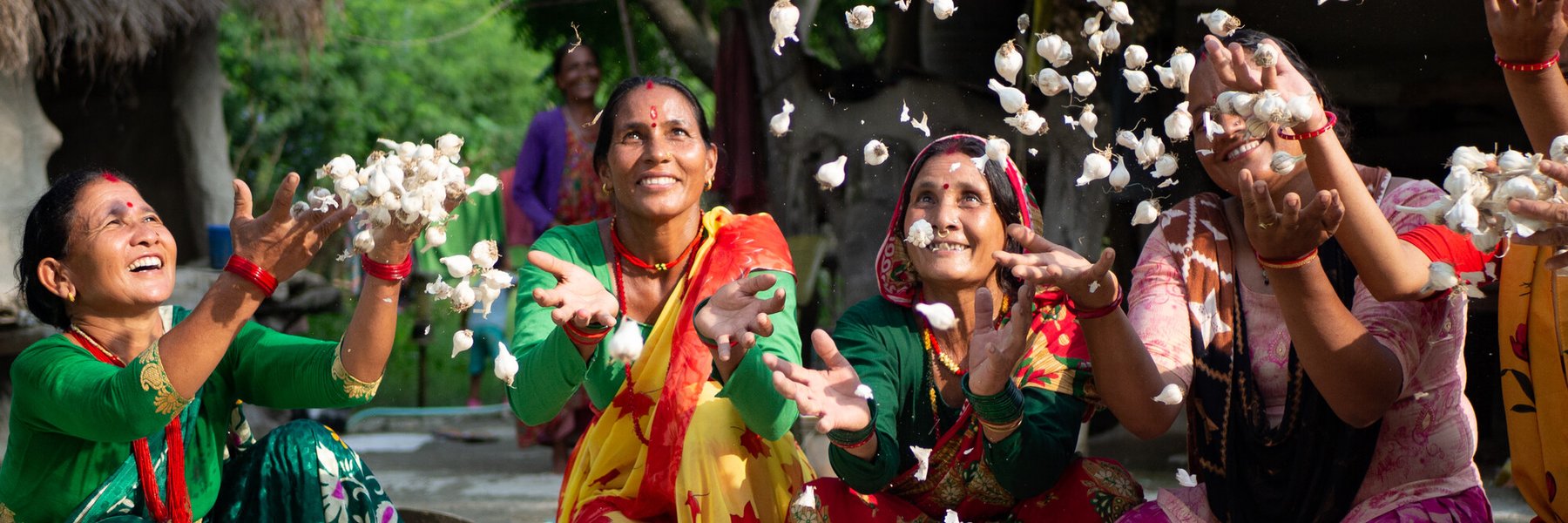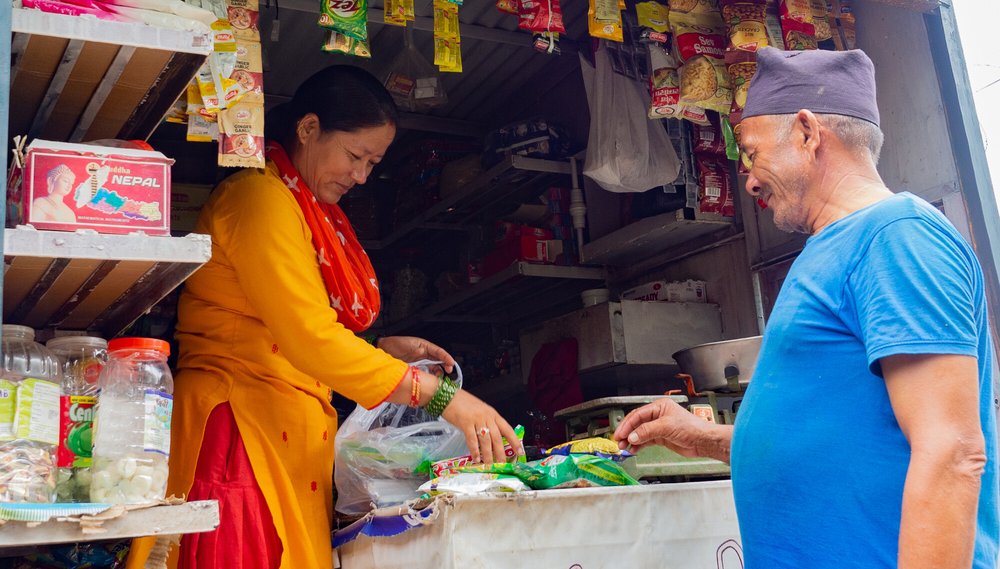
Members of a women’s group celebrate the success of their garlic project. Oxfam and partner NEEDS provided technical assistance for the project, and supported the women’s group with trainings. Image: Elizabeth Stevens/Oxfam
We carry heavy responsibilities and worries, but when we're together we can take a load off our shoulders for a while.”
Sunita Rawal of Gaudi, Nepal
The Women’s Empowerment Groups of Nepal
The front-line of the climate crisis
Women are among the most vulnerable in the face of emergencies. But they often have the knowledge, skills and determination to find solutions. Their voices need to be heard in local decision-making spaces around disaster management.
On the front lines of the climate crisis, Oxfam sees advancing gender equality and reducing disaster risks as inextricably linked.
Basanti Sunar (left) and Maya Devi Sunar are members of a women’s group. Image: Elizabeth Stevens/Oxfam
It might flood at any time, but here we are talking and smiling, leaving behind our fear by being together.”
Maya Devi Sunar (right) from Kutiya Kabar municipality, Nepal
That’s why Oxfam and partner NEEDS have helped established 40 Community Disaster Management Committees across the Kanchanpur and Dadeldhura districts of Nepal: 24 of which are chaired by women. A further 40 women’s groups have also been created to empower women to overcome sexism, gender-based violence and make their voices heard in local decision-making.
Now, women throughout Nepal are coming together to reduce disaster risks and bring essential services to their communities.
There used to be domestic violence here, we have made the community violence-free.”
Kaushila Sunar
These women’s groups have brought about profound shifts in the roles and status of women in their families and communities. Husbands are now helping around the house, women are becoming respected activists, and the ever-present threat of gender-based violence is declining.
"The fear that was inside us has vanished"
After losing everything in a flood, Anjali Devi Bohora has become a leader in her community on disaster management. Image: Elizabeth Stevens/Oxfam

Anjali Devi Bohora serves a customer at her shop, which was funded by Oxfam and NEEDS. After Bohora lost her home to a flood, she became a leader in disaster management.
In community after community, women report that membership in these groups has been transformative. Anjali Devi Bohora is one of these women.
I used to be so nervous it was hard for me to utter a word in public.”
Anjali Devi Bohora
This is the same Anjali who — with the women’s group she helped organise — brought wifi and a road to Khalla Maseti, her isolated, flood-prone community in Nepal. The same woman who has become the go-to person in her village for emergencies of all kinds — who now owns a small shop and has become an elected official in local government.
Basanti Buda from Kutiya Kabar — another Nepalese village on the border that experiences devastating floods — echoes her experience at a community gathering.
We couldn’t even come out of our kitchens. Even if I just had to tell my name, my legs would shake with nervousness. We are as strong as a strong wall, no one can defeat us.”
Khima Tamata
Now, women are the movers and shakers of the community.
If you want to support women of the future to take the lead in making their communities safer and their incomes more secure, consider leaving a gift to Oxfam in your Will.
Because no one is immune to poverty, and no one is above it, but together we can end it.